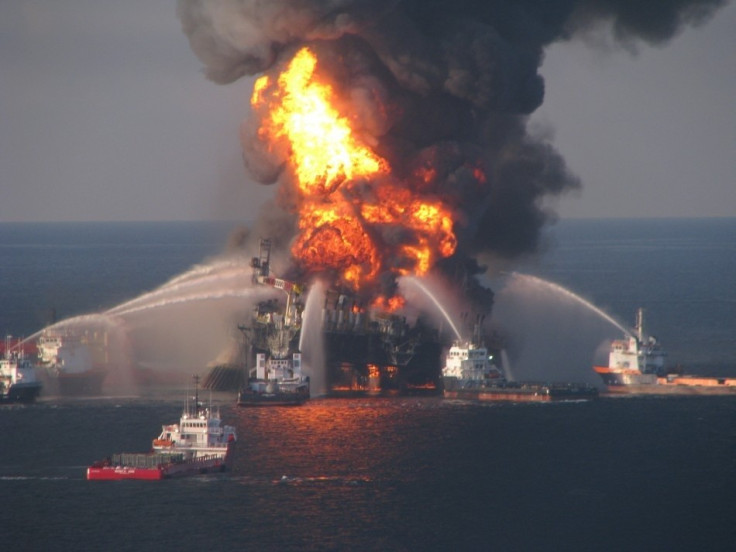BP Gulf of Mexico Oil Spill: Counting Fallout Costs

April marks the three year anniversary of BP's Gulf of Mexico oil spill which resulted in the worst environmental disaster in recent history.
In 2010, the Deepwater Horizon oil rig exploded in the BP-owned Macondo Prospect, which spilled millions of barrels of oil into the surrounding waters, over a three month period.
Eleven workers on the rig died in the explosion and environmental devastation slicked its way through the waters, poisoning marine life as well as a number of clean-up workers and Gulf of Mexico residents.
The local economy suffered as tourism declined and fishermen could no longer take their boats out into the water.
As the oily waves licked the shore, BP licked its financial wounds.
It is still counting the cost of the Deepwater Horizon disaster and has already shelled out billions of dollars in claims and fines against it for the failings before and after the spill.
Much of the litigation is completed, but some battles are still going on - and all is not likely to be settled until at least 2014.
IBTimes UK takes you through the costs so far and what's left to count in a bill that is steadily rising and, at current estimates, will top $42bn (£27.1bn, €32.1bn).
Deepwater Horizon Oil Spill Trust
This $20bn fund was set up by BP in the wake of the oil spill after talks with the US government.
"The Trust's purpose is to assure those adversely affected by the spill that BP indeed intends to stand behind its commitment to them and to American taxpayers," says the BP website.
It covers the cost of "legitimate claims from individuals and businesses, all local, state and tribal government claims, all litigation judgments and other settlements, and natural resource assessment and damages costs."
Fines and penalties are paid out of a separate pot.
So far BP has faced more than 100,000 claims against it for a variety of reasons; from ill-health to financial loss.
One of the most recent lawsuits comes from New York City which is suing BP for $39m for pension fund losses.
"BP failed to disclose to shareowners the serious risks involved in its offshore drilling operation," Comptroller John Liu said.
"After the spill began, it misleadingly attempted to minimize the extent of the damage and the cost to shareowners."
In March a further 2,200 fresh claims were made against BP under the United States Oil Pollution Act of 1990, which the oil giant is attempting to merge into a mega trial already underway in New Orleans.
As of March 31 this year, BP has paid out $10.7bn to settle individual, business, and government claims against it.
Manslaughter admission
BP came to a plea deal, with the US Department of Justice, over the eleven deaths which saw it admit guilt for manslaughter.
The firm pled guilty to 11 felony counts of Misconduct or Neglect of Ships Officers relating to the loss of 11 lives; one misdemeanour count under the Clean Water Act; one misdemeanour count under the Migratory Bird Treaty Act; and one felony count of obstruction of Congress.
Its total cost to settle the cases came to $4.5bn, a record corporate fine in the US.
The US Environment Protection Agency also placed a temporary block on BP from forging new contracts with the US government because of BP's "lack of business integrity".
Clean Water Act
BP is nervously awaiting Judge Carl Barbier's decision over whether it can be considered "grossly negligent" under the Clean Water Act for its part in the spill and events that led up to it.
The classification of blame is worth billions of dollars to the firm. Its fine for the spillage is tied to the number of barrels worth of oil that flowed out into the ocean.
BP will be fined $1,100 per barrel for the 4.9 million that seeped out if found guilty of ordinary negligence. If the judge decides BP is grossly negligent, it must stump up $4,300 a barrel - leaving the oil giant with a fine in excess of $17bn.
While Judge Barbier's verdict on the level of negligence is due by the summer, there is a second half of the trial which will attempt to determine exactly how much oil was spilled.
BP has tried to deflect part of the blame away from itself and onto partner corporations. It has pointed the finger at Transocean, which owned the Deepwater Horizon rig operated by BP, and the rig's cement provider Halliburton Co.
If BP has been successful in reducing its blame burden it could save itself billions of dollars in fines.
© Copyright IBTimes 2025. All rights reserved.






















